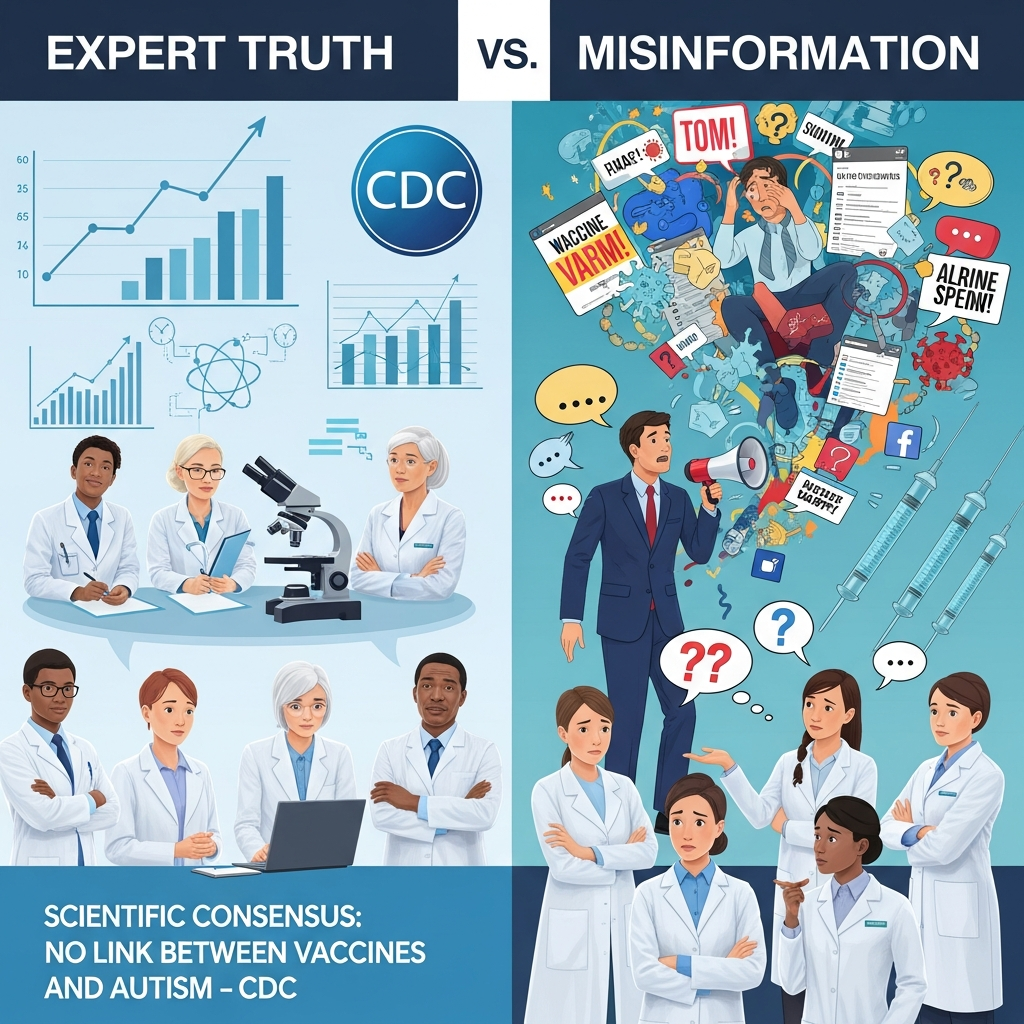The alarming rise of colorectal cancer (CRC) in younger adults, particularly women under 50, has become a pressing medical mystery. For years, this disease was primarily associated with older populations, but recent trends show a concerning shift, with one in five cases now diagnosed in individuals under 54. New research offers crucial insights, pointing to dietary habits as a significant, yet often overlooked, factor in this troubling increase.
The scientific community is intensely focused on understanding why younger generations are facing this elevated risk. While multiple elements likely contribute, groundbreaking studies are zeroing in on specific lifestyle choices, offering a roadmap for prevention and earlier detection.
The Alarming Surge of Early-Onset Colorectal Cancer
Colorectal cancer cases among adults aged 50 and younger have seen a marked increase, especially in high-income nations like the United States. If current trends persist, experts project that early-onset colorectal cancer could become the leading cause of cancer-related death among young adults by 2030. This drastic rise has prompted researchers to investigate various potential contributors, from environmental influences to evolving dietary patterns. Understanding the underlying causes is critical to curbing this growing health crisis and protecting younger lives.
Ultra-Processed Foods: A Key Culprit for Younger Women
A recent study published in JAMA Oncology offers a compelling clue, specifically linking the consumption of ultra-processed foods (UPFs) to an increased risk of developing precancerous colorectal polyps in women before age 50. Led by researchers from Harvard and Mass General Brigham, this extensive analysis utilized data from the Nurses’ Health Study II, a long-term prospective study. It tracked nearly 30,000 women born between 1947 and 1964, a generation already at elevated risk for early-onset CRC.
The findings were striking: participants who consumed the highest levels of ultra-processed foods faced a 45 percent higher risk of developing conventional adenomas. These adenomas are precancerous polyps and often precursors to early-onset colorectal cancer. Women averaging 10 servings of UPFs daily showed this increased risk compared to those consuming about three servings per day. Senior author Andrew Chan, a gastroenterologist at Mass General Brigham Cancer Institute, emphasized the linear relationship between increased UPF intake and a higher potential for developing colon polyps.
What are Ultra-Processed Foods?
It’s vital to distinguish between “processed” and “ultra-processed” foods. Ultra-processed foods are typically ready-to-eat products high in sugar, salt, unhealthy fats, and refined grains. They often contain additives like preservatives, emulsifiers, flavor enhancers, and artificial colors not found in home-cooked meals. These foods, designed for taste and extended shelf life, often lack essential fiber and nutrients. They now constitute approximately 70% of the US food supply and nearly 60% of adult caloric intake. Major sources include certain breads, breakfast foods, sauces, condiments, and sweetened beverages.
The study rigorously accounted for other known colorectal cancer risk factors, including body mass index (BMI), Type 2 diabetes, and low fiber intake. Even after adjusting for these confounding factors, the strong association between UPFs and precancerous polyps remained robust. This marks the first study to specifically link ultra-processed foods to the development of early-onset colorectal cancer precursors.
Beyond UPFs: Unveiling Other Contributing Factors
While ultra-processed foods present a significant piece of the puzzle, scientists are exploring other intricate factors that may contribute to the rise of early-onset colorectal cancer. The disease is complex, and it’s clear that no single cause explains this alarming trend entirely.
The Gut Microbiome Link: A Childhood Exposure
Another fascinating area of research points to the gut microbiome. A study published in Nature revealed a strong association between childhood exposure to colibactin, a DNA-damaging toxin produced by specific E. coli bacteria, and early-onset colorectal cancer. Researchers analyzed nearly 1,000 CRC patient samples from 11 countries, identifying unique “mutational signatures” in their DNA.
Patients diagnosed with colorectal cancer before age 50 showed a “striking enrichment” of these colibactin-linked mutations. Those diagnosed under 40 were about three times more likely to have these signatures compared to those diagnosed after 70. Ludmil Alexandrov of the University of California, San Diego, explained that these genomic “archeological records” suggest critical colibactin exposure often occurs before age 10. This early “hit” to the gut microbiome may accelerate cancer onset by 20 to 30 years. While not definitively proving causation, this discovery opens avenues for understanding how early life factors, potentially linked to the Western diet, antibiotic use, or even birth mode, could shape future cancer risk.
Lifestyle’s Broad Impact: Calcium, Alcohol, and Obesity
Further research published in the journal Neoplasia highlights additional primary risk factors for “very early-onset colorectal cancers,” defined as diagnoses before age 35. This international study pinpointed a diet deficient in calcium as the highest risk factor, accounting for approximately one in five deaths from colon cancer in this young demographic. Alcohol consumption ranked as the second largest risk factor, with obesity closely following as the third. Interestingly, lack of exercise and smoking showed “less contribution to deaths” in this specific age group compared to these other factors.
Between 1990 and 2019, global colon cancer cases in individuals under 35 nearly doubled, from 21,874 to 41,545, with men disproportionately affected. These findings underscore the profound impact of modifiable lifestyle choices, even beyond ultra-processed foods, on the risk of early-onset colorectal cancer.
Actionable Steps: Protecting Yourself from Early-Onset Colorectal Cancer
Given these new insights, proactive measures are more important than ever, especially for younger adults. Empowering yourself with knowledge and making informed choices can significantly mitigate risk.
Make Smart Dietary Choices
Prioritize Whole Foods: Shift your diet towards real, whole, minimally processed foods. This includes plenty of vegetables, fruits, whole grains, beans, legumes, nuts, and seeds.
Limit Ultra-Processed Foods: Consciously reduce your intake of foods high in added sugars, unhealthy fats, refined grains, and artificial additives. Read labels carefully.
Boost Calcium Intake: Ensure adequate calcium intake through dairy products (if tolerated), fortified plant-based milks, leafy greens, and other calcium-rich foods.
Adopt a Mediterranean-Style Diet: This dietary pattern, rich in fruits, vegetables, whole grains, healthy fats (like olive oil), and lean proteins, is consistently linked to better health outcomes.
Embrace a Healthy Lifestyle
Stay Active: Regular physical activity is a cornerstone of cancer prevention and overall well-being. Aim for at least 150 minutes of moderate-intensity exercise per week.
Moderate Alcohol Consumption: Limit or avoid alcohol. Excessive intake is a clear risk factor.
Maintain a Healthy Weight: Obesity is a known contributor to various cancers, including colorectal cancer.
Quit Smoking: Smoking dramatically increases cancer risk across the board.
Be Aware and Get Screened
While often subtle, symptoms of colorectal cancer can include persistent abdominal pain, unexplained weight loss, changes in bowel habits (like persistent constipation or diarrhea), dark or bloody stool, and anemia. Do not dismiss these symptoms, especially if they persist.
Current guidelines recommend colorectal cancer screening for individuals at average risk beginning at age 45. However, if you have a family history of the disease or other risk factors, your doctor may recommend earlier screening. Increased awareness among both young adults and medical professionals is paramount for earlier detection and improved treatment outcomes.
Frequently Asked Questions
How do ultra-processed foods contribute to colorectal cancer risk in younger women?
Ultra-processed foods (UPFs) are linked to a 45% increased risk of precancerous colorectal polyps (adenomas) in women under 50, according to a JAMA Oncology study. These foods, high in sugar, unhealthy fats, refined grains, and additives, may promote inflammation and metabolic changes that drive polyp formation. The study, involving nearly 30,000 women, showed a direct correlation: the more UPFs consumed, the higher the risk of developing these precursors to early-onset colorectal cancer.
What dietary changes are recommended to reduce early-onset colorectal cancer risk?
To reduce risk, focus on a diet rich in whole, minimally processed foods like fruits, vegetables, whole grains, legumes, nuts, and lean proteins. Limit ultra-processed foods, sugary drinks, and excessive alcohol. Studies also highlight calcium deficiency as a risk factor in younger adults, so ensure adequate calcium intake. Adopting a Mediterranean-style diet, known for its emphasis on plant-based foods and healthy fats, is a highly recommended preventive strategy.
When should younger adults consider screening for colorectal cancer?
For individuals at average risk, colorectal cancer screening is generally recommended starting at age 45. However, if you have a family history of colorectal cancer, a personal history of inflammatory bowel disease, or other significant risk factors, your doctor may advise starting screening earlier. It’s crucial for younger adults experiencing persistent symptoms like abdominal pain, changes in bowel habits, or rectal bleeding to consult a healthcare professional promptly, regardless of age, as early detection significantly improves outcomes.
Conclusion
The rising tide of early-onset colorectal cancer is a complex and concerning public health challenge. While the precise causes are multi-faceted, recent research provides compelling evidence linking dietary choices, particularly the consumption of ultra-processed foods, to an increased risk, especially in younger women. Beyond diet, factors such as gut microbiome imbalances and other lifestyle elements like calcium intake, alcohol consumption, and obesity also play significant roles.
By prioritizing a whole-foods diet, maintaining an active lifestyle, and being vigilant about symptoms, younger adults can proactively reduce their risk. Regular check-ups and adherence to screening guidelines, adjusted for personal risk factors, are crucial steps in the fight against early-onset colorectal cancer. The message is clear: our daily choices profoundly impact our long-term health, and taking charge of our well-being now is more important than ever.




